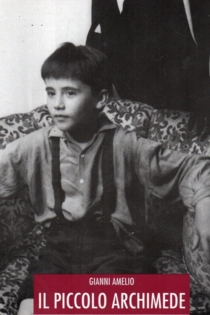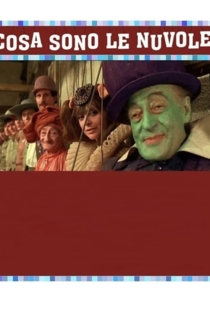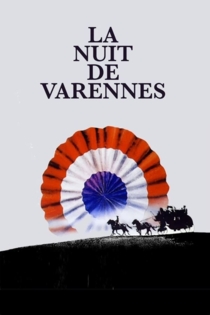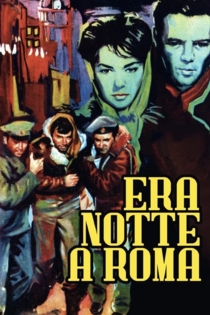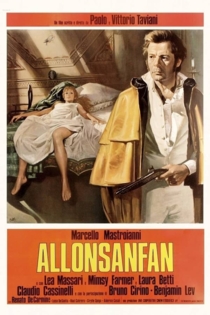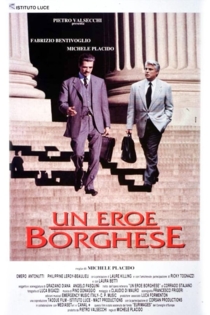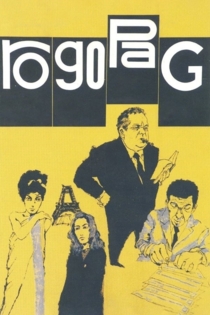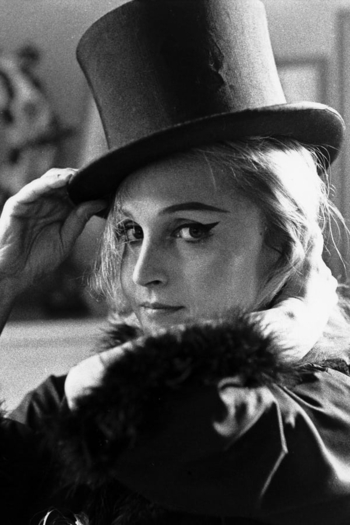
Laura Betti
1927 - 2004Betti became famous for portraying bizarre, grotesque, eccentric, unstable or maniacal roles, like Regina in Bernardo Bertolucci's 1900, Anna the medium in Twitch of the Death Nerve, Giovanna la pazza in Woman Buried Alive, hysterical Rita Zigai in Sbatti il mostro in prima pagina, Therese in Private Vices, Public Virtues, Emilia the servant in Pier Paolo Pasolini's Teorema for which she won the Volpi Cup for Best Actress, and Mildred the protagonist's wife in Mario Bava's Hatchet for the Honeymoon.
Born Laura Trombetti in Casalecchio di Reno, near Bologna, she grew up to be interested in singing. She first worked professionally in the arts as a jazz singer and moved to Rome.
Betti made her film debut in Federico Fellini's La Dolce Vita (1960). In 1963, she became a close friend of the poet and movie director Pier Paolo Pasolini. Under his direction, she proved a wonderful talent and played in seven of his films, including La ricotta (1963), Teorema (Theorem, 1968), his 1972 version of The Canterbury Tales, in which she played the Wife of Bath; and his controversial Salo (1975) ("120 Days of Sodom").
In 1976, Betti portrayed Regina, a cruel and eroto-maniacal fascist in Bernardo Bertolucci's Novecento (1900). She also played Miss Blandish in his Last Tango in Paris (1972), though her single scene was deleted.
In 1973 she dubbed the voice of the Devil for the Italian version of William Friedkin's The Exorcist.
From the 1960s, Betti dedicated much of her time to literature and politics. She became the muse for a number of leading political and literary figures in Italy and came to personify the revolutionary and Marxist era of 1970s Italy.
In 2001, she made a documentary about Pasolini, Pier Paolo Pasolini e la ragione di un sogno. She also donated her papers related to their long friendship along with more than 1000 volumes and many documents connected to Pasolini to the archives of the Fondazione Cineteca di Bologna, thus creating the Centro Studi Archivio Pier Paolo Pasolini. This Centro, strongly wanted by Betti, owns also thousands of photograph and all the works of Pasolini: poetry, literature, cinema and journalism. After her death in 2004 her brother Sergio Trombetti has donated all the personal documents of her career to the Centro that has absorbed them under the name Fondo Laura Betti.
Source: Article "Laura Betti" from Wikipedia in English, licensed under CC-BY-SA 3.0.
La Dolce Vita
Federico Fellini
Marcello Mastroianni, Anita Ekberg
Journalist and man-about-town Marcello struggles to find his place in the world, torn between the allure of Rome's elite social scene and the stifling domesticity offered by his girlfriend, all the while searching for a way to become a serious writer.
La Dolce Vita
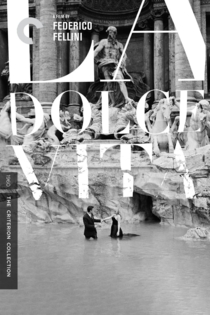
1900
Bernardo Bertolucci
Роберт Де Ниро, Gérard Depardieu
Прекрасным летним утром 1900 года в итальянской провинции Эмилия появляются на свет два мальчика. Олмо — еще один рот в многодетной семье бедного крестьянина. Альфредо — отпрыск богатых помещиков. Несмотря на столь различное социальное положение, мальчики не только подружатся, но пронесут дружбу через всю свою жизнь. Они — дети страшных лет Европы, чье отрочество придется на годы Первой мировой войны, а зрелость вступит в свои права под грохот гитлеровских орудий. Да и в промежутке событий будет предостаточно. Фашистская Италия — страна неспокойная. Меняется вековой уклад общества, народ все больше узнает от социалистов о своих правах, Муссолини использует смуту для захвата власти. Ветер перемен врывается и в провинцию Эмилия. Обостряются отношения крестьян и землевладельцев, но Олмо и Альфредо остаются друзьями. Сплетение судеб — близких и бесконечно далеких, сплетение жизни личности и жизни страны.
1900
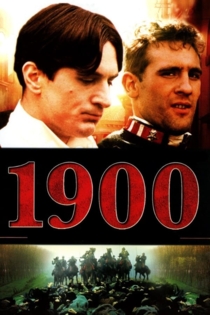
Slap the Monster on Page One
Marco Bellocchio
Gian Maria Volonté, Fabio Garriba
1972, Milan. Just a few days before the general elections, a young girl from an esteemed family is raped and murdered. Bizanti, editor-in-chief of a conservative newspaper, tries to derail the official police investigation in order to help the right-wing candidates supported by his boss to win the elections.
Slap the Monster on Page One
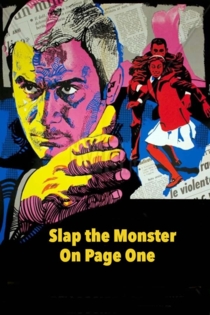
Wie de Waarheid Zegt Moet Dood
Philo Bregstein
Alberto Moravia, Laura Betti
Philo Bregstein tells us this film looks at Pasolini's life and art to explain why he died. The film traces Pasolini's life chronologically - family roots, hiding during World War II, teaching, moving to Rome, being arrested and acquitted many times, publishing poems, getting into film, being provocative, and being murdered. Interviews with Alberto Moravia, Laura Betti, Maria Antonietta Macciocch, and Bernard Bertolucci are inter-cut with readings of Pasolini's poems and with clips from four films - primarily the Gospel According to St. Matthew - to illustrate his changing ideas and points of view. Bregstein makes a case for Pasolini's being lynched.
Whoever Says the Truth Shall Die
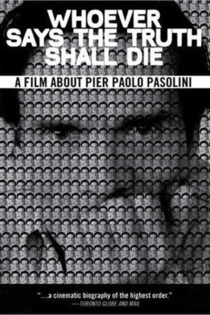
Io sono Anna Magnani
Chris Vermorcken
Anna Magnani, Claude Autant-Lara
Traces the life of Anna Magnani, her creations, her successes, her triumphs, her boycotted career, her nonconformism, her anxieties, her generosity ... Punctuated with photos that tell her career in theater and cinema, Extracts of films, this documentary portrait also gives the floor to his friends and relatives, from Roberto Rossellini to Marcello Mastroianni, through Federico Fellini.
My Name Is Anna Magnani

Jane B. by Agnès V.
Agnès Varda
Jane Birkin, Jean-Pierre Léaud
The interests, obsessions, and fantasies of two singular artists converge in this inspired collaboration between Agnès Varda and her longtime friend the actor Jane Birkin. Made over the course of a year and motivated by Birkin’s fortieth birthday—a milestone she admits to some anxiety over—Jane B. by Agnès V. contrasts the private, reflective Birkin with Birkin the icon.
Jane B. by Agnès V.
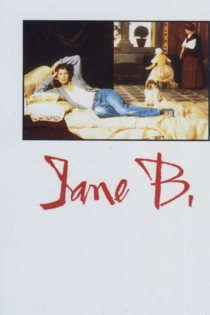
Raul - Diritto di uccidere
Andrea Bolognini
Stefano Dionisi, Violante Placido
In a fascist Rome anxiously awaiting Hitler's visit, Raul is a young man not aligned with the regime and beset by debts. In May 1938, Raul kills an old usurer and her sister: not out of necessity, but to investigate the concept of the "right to kill" ... who can motivate it and assume the right?
Raul - Right to Kill
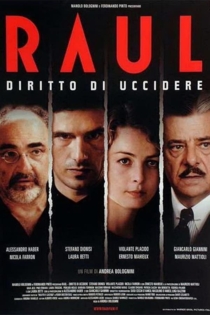
Theorem
Pier Paolo Pasolini
Terence Stamp, Silvana Mangano
A wealthy Italian household is turned upside down when a handsome stranger arrives, seduces every family member and then disappears. Each has an epiphany of sorts, but none can figure out who the seductive visitor was or why he came.
Theorem

Il piccolo Archimede
Gianni Amelio
John Steiner, Aldo Salvi
The action takes place in Florence in the 1930s. Alfred, an Englishman who moved to that city in order to write a book on Giotto, meets a boy who is fond of music and mathematics, with whom he becomes close friends. Alfred goes to Switzerland, but one day he receives an anguished letter from the boy and rushes back to Florence where he learns some terrible news.
The Little Archimedes
